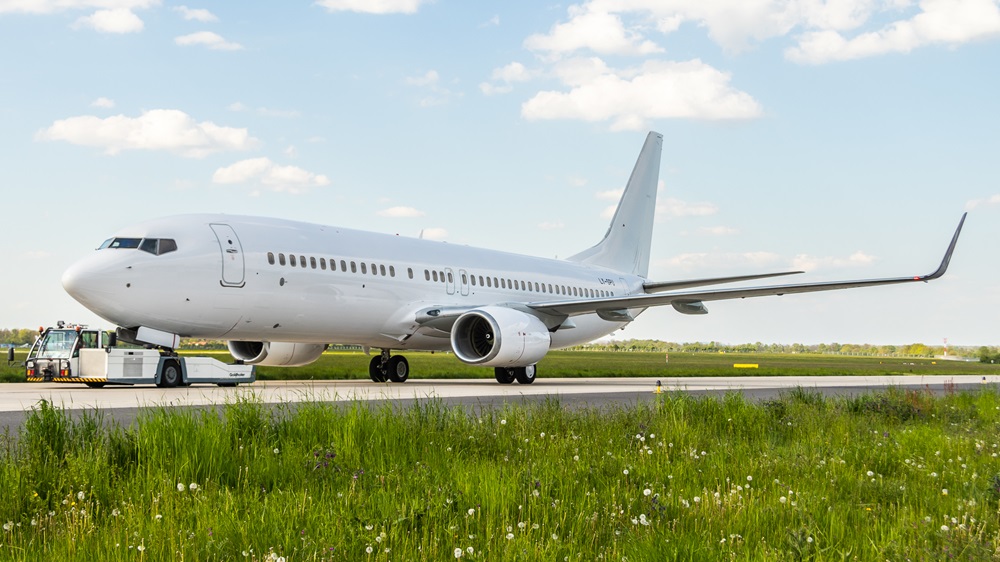KlasJet’s ACMI Operations Surge 134% Amid Record Summer Demand
 Summertime means peak travel in Europe, and Eurocontrol reported more than 2.1 million flights in its airspace during July and August 2024. While the season is a high-water mark for operations, it is also a time of opportunity for ACMI (Aircraft, Crew, Maintenance, and Insurance) providers who offer much-needed capacity for airlines. Among ACMI providers, KlasJet, a well-known exclusive private and corporate jet charter company, operated almost 5,000 flights from May through October this year, marking an all-time high for the company. Augustinas Riskus, Deputy Chief Commercial Officer for KlasJet, shares never-before-seen details of this past summer's operations to provide insight into the diversity and strength of the carrier's operations during this important time in global air transport.
Summertime means peak travel in Europe, and Eurocontrol reported more than 2.1 million flights in its airspace during July and August 2024. While the season is a high-water mark for operations, it is also a time of opportunity for ACMI (Aircraft, Crew, Maintenance, and Insurance) providers who offer much-needed capacity for airlines. Among ACMI providers, KlasJet, a well-known exclusive private and corporate jet charter company, operated almost 5,000 flights from May through October this year, marking an all-time high for the company. Augustinas Riskus, Deputy Chief Commercial Officer for KlasJet, shares never-before-seen details of this past summer's operations to provide insight into the diversity and strength of the carrier's operations during this important time in global air transport.
“May-October represented a 134% increase in our ACMI block hour operations compared to the same time last year,” Riskus said. “This monumental increase in activity was thanks to a growth in demand for air travel that required airlines to use every available resource.”
In total, KlasJet operated 14,045 block hours using the seven 737s in its ACMI fleet this summer. These aircraft flew for a variety of customers, including Israeli flag carrier EL AL, Smartwings, and Marabu. In the same period last year, the carrier flew 5,999 hours with five aircraft.
“While this unprecedented increase in block hours was good for us, the airlines that we flew for were the first to experience the rewards of ACMI,” Riskus said. “With the two additional 737s bringing a capacity of 186 seats each, we flew 426,099 more passengers for our airline customers in May-October 2024 than the same period last year.”
Riskus added that this would increase several key metrics for the airlines, including their revenue per seat mile flown. While each airline will have a variety of factors that will affect its financial performance, and year-end earnings have yet to be reported, ACMI capacity usually increases airline profits by 2-3%.
During the past summer, KlasJet’s flight time averaged 2.86 hours per movement. The flight time is a key metric because it hits the balance of operational revenue and cost. A key to reaching this length was company’s strategy to place aircraft in strategic locations that were advantageous to customer needs. During the summer of 2024, aircraft operations were based in destinations that included Munich (MUC), Prague (PRG), Porto (OPO), Bratislava (BTS), and Brno (BRQ).
"We saw that our clients understand the advantage of taking ACMI-in as this solution provides you with much-needed capacity where and when you need it,” Riskus said. “This allows the airlines to utilize the full extension of additional capacity during the peak seasons and not to lose any market share to competitors, while during the low season the carrier can reduce their operations to meet the demand"
Riskus added that this summer's ACMI schedule brought increased diversity of routes, which was advantageous for airlines looking to find their niche in the market. While route diversification can be tricky for some charter companies, KlasJet, as part of Avia Solutions Group, had experience operating with AOCs on six continents, allowing it to be flexible in meeting customer needs.
Even after concluding the summer of record-setting travel, KlasJet continues operations for some of its customers, as ACMI is most effective for customers when it is used for six months of each financial year. Beyond November, the airline has secured additional contracts in other regions of the world to maintain its utilization rate during the off-season.
“While the summer travel this year was certainly a peak, the mechanisms that shaped the demand are not going to change anytime soon,” Riskus said. “As much as we want to celebrate success this summer, we are maintaining our discipline to deliver in 2025 so our customers can do more.”
